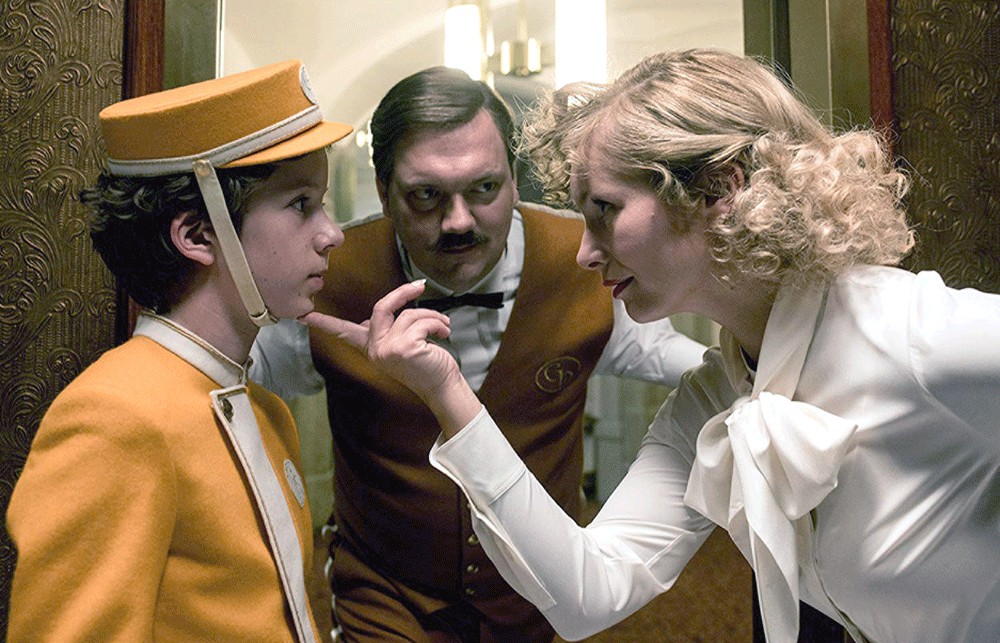German Cinema returns with diverse movie selection
Change Size
 Kid friendly: Timm Thaler oder das Verkaufte Lachen (The Legend of Timm Thaler or The Boy Who Sold His Laughter) is one of the family-oriented films suitable for a younger audience that will feature at the German Cinema film festival. (Courtesy of Constantin Film Verleih GmbH/-)
Kid friendly: Timm Thaler oder das Verkaufte Lachen (The Legend of Timm Thaler or The Boy Who Sold His Laughter) is one of the family-oriented films suitable for a younger audience that will feature at the German Cinema film festival. (Courtesy of Constantin Film Verleih GmbH/-)
After taking a year off, the German Cinema film festival returns for its sixth edition this year with screenings in six cities.
The free-admission festival, which is organized by German cultural center Goethe Institut, runs from Oct. 4 to 21 in Jakarta, Denpasar in Bali, Bandung in West Java, Makassar in South Sulawesi, Yogyakarta, and Surabaya in East Java.
Cinephiles in Jakarta and Denpasar had their chance to visit GoetheHaus and Level 21 XXI cinema, respectively from, Oct. 5 to 7, while those in Bandung and Makassar can visit Ciwalk XXI and Nipah XXI, respectively, from Oct. 12 to 14.
The last stop in the festival will be Yogyakarta and Surabaya, where moviegoers are directed to Empire XXI and Sutos XXI, respectively, from Oct. 19 to 21.
The festival kicked off in Epicentrum XXI movie theater, South Jakarta, with a screening of Aus dem Nichts (In the Fade), directed by Fatih Akin and starring Diane Kruger.
Aus dem Nichts, winner of the Best Foreign Film award at the 2017 Golden Globe Awards and Best Actress at the 2017 Cannes Film Festival, puts Kruger in the role of Katja, a German woman whose life fell apart after the death of her Kurdish-German husband and son in a terrorist attack linked to a Neo-Nazi group.
While Aus dem Nichts, which is based on a terrorist attack carried out by the National Socialist Underground cell in Cologne, Germany, in 2004, is quite a heavy movie to open German Cinema. Nevertheless, audience members looking for something more light-hearted will still be able to find something that suits their taste.
For those interested in bringing children or tweens, Königin von Niendorf (Queen of Niendorf) and Timm Thaler oder das Verkaufte Lachen (The Legend of Timm Thaler or The Boy Who Sold His Laughter) were a hit among young audiences in Germany, according to festival director Anna Maria Strau.
Königin von Niendorf and Timm Thaler oder das verkaufte Lachen are exceptions to the festival’s generally 18-years and up age restriction. Despite this adult-oriented approach, this year’s German Cinema actually brings the topic of family onto the big screen.
Wilkommen bei den Hartmanns (Welcome to Germany) provides a lighter take on the European migrant crisis, portraying a family in Grünwald taking in a Nigerian refugee while dealing with the cultural differences in humorous ways.
Meanwhile, a documentary titled Happy from director Carolin Genreith tells the story of her father, Dieter Genreith, and his relationship with a Thai woman following his divorce, which forces Carolin to confront her own prejudices.
In the documentary Wildes Herz (Wild Heart), viewers get a glimpse into the life of Jan “Monchi” Gorkow, the lead singer of German punk band Feine Sahne Fischfilet, as he takes a stand against his home region of Mecklenburg’s growing far-right influences, despite his conflicts with the police and his parents during his time as a football hooligan in his youth.
Those looking for drama might be interested in seeing Sommerhäuser (The Garden) and Western. The former portrays a family’s conflicts during one summer holiday in an idyllic garden, while the latter follows a group of German builders navigating culture clashes as they work on a building site in the Bulgarian provinces.
A screening of Beuys, a documentary on the late German performance artist Joseph Beuys, was followed by a discussion with Enin Supriyanto, Marintan Sirait and Tisna Sanjaya on Beuys’ concept of soziale plastik (social sculpture), where society in its entirety was to be regarded as one work of art to which everyone can contribute.
Goethe Institut director Heinrich Blömeke said the festival sought to inspire Indonesian audiences as well as raise interest in German movies.
“As the festival shows, the contemporary German movie scene is continuously changing and has to offer a lot of exciting and fresh views, also in the sense of reflecting the growing diversity on all aspects of life in Germany,” he added.









